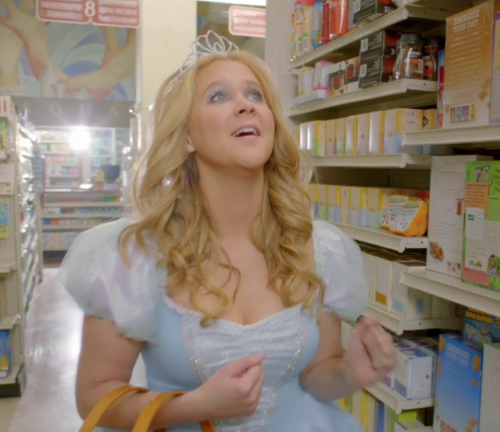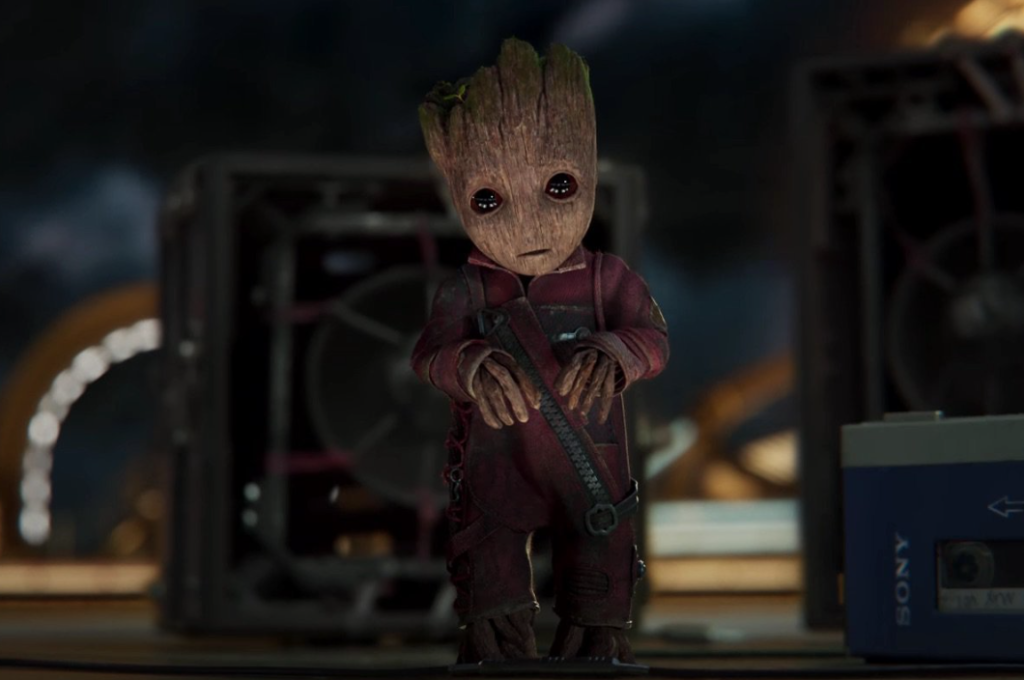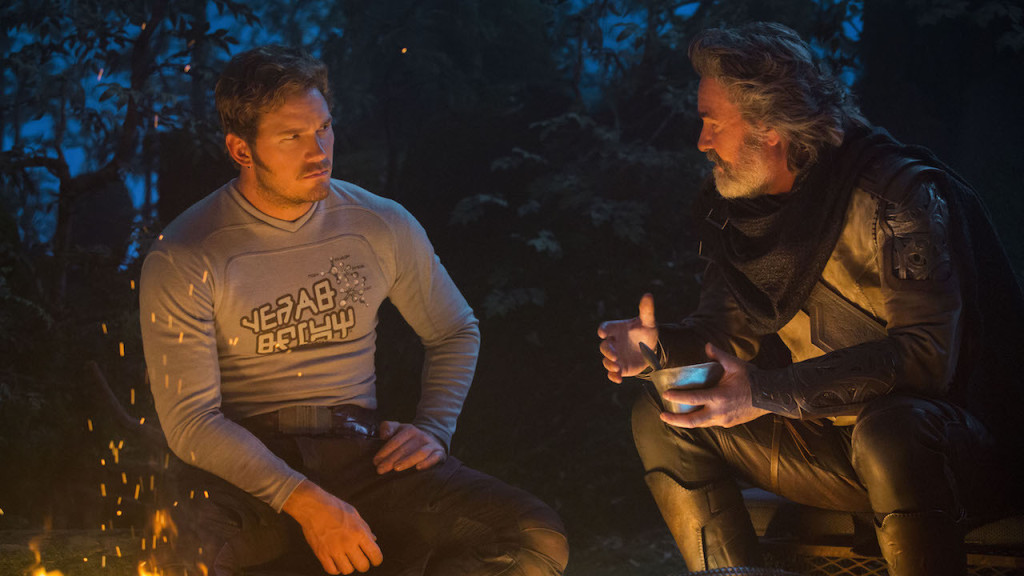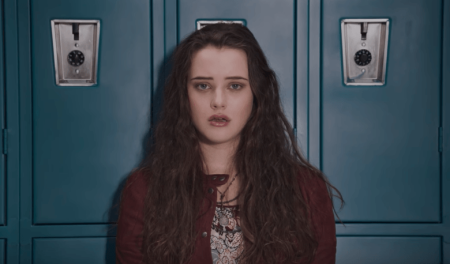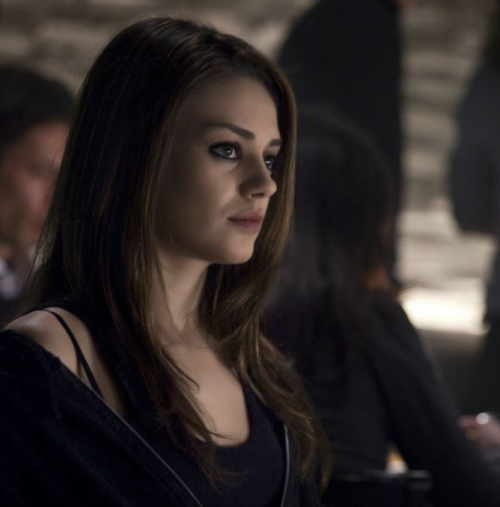This high-profile spec sale achieves what many thought was impossible – it brings back the romantic comedy!
Genre: Romantic Comedy/Fairy Tale
Premise: When a fairy godmother is commissioned to help a young woman land the fairest prince in the land, things go awry when the godmother falls for the prince herself.
About: Fairy Godmother sold as a spec late last year to MGM. It comes from newbie screenwriter Chiara Atik, who honed her craft in the playwrighting world.
Writer: Chiara Atik
Details: 113 pages
May I suggest something to those of you scraping by on ramen noodles and that 3 year old bag of chicken cutlets in the back of your freezer?
LOOK INTO THE FAIRY TALE GENRE.
Let’s be honest. There aren’t a lot of lanes to sell spec scripts in at the moment. You’ve got your female John Wick-flicks. You’ve got your biopics. You’ve got a more recent and surprising fad – intense real-life story scripts (stuff dealing with Anne Frank or JFK’s mentally-challenged sister). And finally, you have the fairy tale world.
[note: This does not take into account whoever comes up with the next big fresh concept that starts the next spec-sale trend]
Studios buy fairy tale scripts because they’re IP without needing to pay for IP. Every person on the planet knows all the famous fairy tale tropes because they were all read to us when we were children. If the studios know that you know about something, that means they don’t have to do all of the work of explaining it to you when it’s time to advertise. They show you a fairy-tale world trailer and you know exactly what’s going on.
Familiarity gets butts in seats.
And the thing is, it really is a fertile ground for storytelling. No, that doesn’t mean you should write the 918th iteration of Cinderella. Simply find a new angle into the fairy tale world, then exploit it. It could be funny, it could be dark, it could be weird, it could be ironic, it could be scary, it could be mysterious. Bring some other genre or concept into the fairy tale world and you could have a spec sale faster than I can say, “You complete me.”
That’s what today’s writer, Chiara Atik, did. Atik took an age-old fairy tale trope, the young girl going to the ball who only has until midnight to win over the prince so the two can live happily ever after, and tells it from the point-of-view of the fairy godmother.
That fairy godmother’s name is Faye, a 40 year-old world-beater in the fairy godmother department. Faye works for a sort of “Fairy Godmother’s Incorporated” company, whereby families can hire a fairy godmother for a night to make their overly dramatic teenage daughters’ dreams come true.
And Faye has a nearly flawless record. Hell, she did Cinderella. But Faye’s about to meet her match in 18 year-old supermodel-in-training Kenzie, a hotter Selena Gomez if there is such a thing. Kenzie is, like, so obsessed with meeting the most eligible bachelor in the land, Prince Carl of Carbondale.
Faye makes a face like she’s just downed a bad shot of whisky and warns Kenzie that Prince Carl is kind of… well… promiscuous. Kenzie doesn’t care. All she wants is one night with the prince. That’s something Faye can manage, so she dresses Kenzie up for the big ball and looks forward to that big – cha-ching! – commission tomorrow morning.
Except that Kenzie is so nervous she demands that Faye come with her. Uhh, that’s not in the fairy godmother handbook, honey. But ya gotta do what ya gotta do. So Faye reluctantly joins her. Once there, Faye accidentally ends up in a back hallway with Prince Carl, who seems to… like her? Pfft, like she would ever get involved with a dumb young prince!
Cut to 20 minutes later, post-sex. What the hell did Faye just do??? I think you know where this red hood is riding. Kenzie, who’s unaware of her fairy godmother’s mishap, pleads with Faye to help her get Carl, and while Faye does just that – giving Kenzie a Pretty Woman style makeover – she keeps bumping into Carl herself, recharging the incredible chemistry the two have. But will the mature and responsible middle-age Faye really throw away her ideal job to be with a hot young piece of ass? Cue the juggling jester to find out!
One of the most common questions I get asked is, “How do I bring the romantic comedy back?” My response is uniformly, “Find a new way into the genre.” This answer is inevitably met with a second question: “How do I do that?”
Today’s script is how you do that.
Fairy Godmother is a romantic comedy. It has all the classic tropes laid out. The “uglier” main character helps the hot dumb client get the man, when all along our main character is falling in love with him as well.
The difference is: WE’RE NOT TELLING THAT STORY IN MODERN DAY NEW YORK CITY!
That’s the first way to make sure you’re not writing a cliche romantic comedy.
Instead, we’re getting the story 500 years ago in the fairy tale world. Now, had that been the only change Atik made, it wouldn’t have been enough. The secret sauce in Fairy Godmother was changing the character we usually see this scenario play out through. That’s what made the script spec-sale worthy.
On top of that, I loved that Fairy Godmother was racy. I mean, people have sex in this script. Our teenage co-lead initially just wants to have one night in Pound Town. In a fairy tale movie. It gave the story some edge and played against the squeaky clean fairy tale persona.
The only thing I had trouble with was that this 40 year old frumpy fairy godmother was so easily able to bag the most handsome prince in the land. That’s not to say Betty Crocker can’t bang Justin Bieber, but this is the kind of thing movies like Knocked Up get called out on all the time. That a guy who looks like Seth Rogen is able to get a woman who looks like Katherine Heigel.
In these instances, it is up to the screenwriter to convince us why this would happen. Is there a particular brand of humor the woman offers that’s right up the guy’s alley? Does she symbolize something that’s missing from his life? Do they connect in some unique way? I never got that answer here, and was always wondering what, exactly, Prince Carl saw in Faye that made him so easily overlook the most beautiful woman in the world.
Despite this, the ever-present charm of the script along with a seamless plot that never got in the way of the story (ahem, take some notes, Guardians 2), made up for any deficiencies the script had.
I also liked some of the offbeat choices Atik made, particular the one she made before the script even began. On the title page, she included a note that read: “Tonally, think a cross between My Best Friend’s Wedding and Into the Woods. Real, everyday people, who just happen to live in a Fairy Tale world.”
Screenwriting purists might scream out blasphemy at such a choice. Shouldn’t it be up to the writing alone to convey tone? But I find when it comes to comedy, tone can be tricky to get a handle on early. By letting us know right away exactly what the tone is, we go in knowing what kind of movie we’re reading. And, at least in this case, it was helpful.
Clever concept. Funny script. Solid execution. Totally see why this sold.
[ ] What the hell did I just read?
[ ] wasn’t for me
[xx] worth the read
[ ] impressive
[ ] genius
What I learned: Clarity is important! This is something we don’t talk about much on the site but it’s often just as important as the creative side of writing. If we don’t understand what you’re saying, it doesn’t matter what you say. Here’s a rare mistake in Atik’s script. Take a look at this sentence.
Prince Carl is seated, eating breakfast. The only other two occupants are his balding, but affable older brother, PRINCE ALISTAIR, and his new(-ish) wife, PRINCESS GRISELDA.
What’s wrong with it? Well, it isn’t 100% clear whether Princess Griselda is the wife of Prince Alistair or Prince Carl. “…and his newish wife…” could be in reference to either. Now, at this point in the story, it had been made clear that Prince Carl was a bachelor, so I knew the answer. But I’ve read a lot of scripts where a sentence like this came early on, when familial connections hadn’t yet been disclosed, and a sentence like this provided a lot of confusion. Always err on the side of caution. So I’d go with something closer to…
Prince Carl is seated, eating breakfast. The only other two occupants are his balding, but affable older brother, PRINCE ALISTAIR, and Alistair’s new(-ish) wife, PRINCESS GRISELDA.
Genre: Sci-fi
Premise: The guardians of the galaxy get split up when leader Peter Quill meets his estranged father for the first time, who promises Peter power beyond his wildest dreams.
About: Baby Groot!
Writer: James Gunn
Details: 136 minutes
On the surface, Guardians 2 has all the things required for summer blockbuster success. Action, humor, special effects, character development, at least three-dozen uses of the word, “family.”
So why did I leave the theater with a sad emoji face? Especially when the movie started off with one of the best blockbuster scenes ever? I’ll give you a hint. It has to do with screenwriting. So crippling were these screenwriting choices, I want to make sure I highlight all of them so that you guys never make these same mistakes yourselves.
For those who haven’t seen Guardians of the Fast and Furious, it follows our space-faring guardian group, Peter Quill, aka Starlord (Chris Pratt), Rocket Raccoon, Gamora, Baby Groot, and Drax, after they steal some next-level batteries from a group of Gold People. Afterwards, the Gold People hire mercenaries to chase the Guardians, which triggers a group split-up.
On the one side, Rocket Raccoon and Baby Groot are captured by the mercenaries. On the other, Starlord, Ghamorra and Drax, meet some dude, Ego, who claims to be Peter’s dad. Ego takes them to his utopian planet, tells Peter all about his past, and lets him know that this is all his, too, if he wants it. Life is good.
We bounce back and forth between the two storylines. Rocket and Baby Groot trying to escape the mercenaries, and Ego explaining their family history to Starlord. We gradually become suspicious of the all-too-perfect Ego, until we realize he wants to rule the universe. Like, literally. The ENTIRE UNIVERSE. Starlord will have to choose, then, between his real family (Ego) and his adopted one (The Guardians).
Guardians 2 starts out so damned good, I thought I was in for the best movie of the summer. The opening scene has the Guardians awaiting a giant blob monster they’ve been hired to kill. When the monster finally arrives, writer-director James Gunn makes the genius choice to not let us see the Guardians battle it. Instead, we focus on Baby Groot as he dances away on the sidelines.
Occasionally, we see bits of the battle spill into the background (Drax being hurled through the air, for example), but we never really see the fight. I can’t tell you how much I loved this scene. It wasn’t just an interesting choice, but an ingenious commentary by Gunn on the state of the modern blockbuster. He’s saying we’ve reached a state whereby we’ve seen so many giant monster movie battles, that we don’t even care if one happens off-screen.
And to Gunn’s credit, he sticks with that philosophy throughout the film. Gunn set out to make a character piece dressed in blockbuster clothes. However, in order to make ‘character’ compelling, you must make it entertaining. We don’t get that here. And there are a whole lot of reasons why.
The first is that the second act sucks. And when I say sucks, I mean it’s one of most boring second acts in recent memory. The reason for this is that Gunn chose to create TWO passive plotlines. The first plotline is people wandering around a planet talking about life (boring). And the second is characters being held captive (slightly less boring). In both instances, we’ve got people sitting around talking a lot. Not a smart decision for any film, but especially a summer blockbuster.
If you’re going to have a slow storyline, you need a more energetic storyline to contrast it against. For example, in Empire Strikes Back (another direct sequel), we have the slow moments of Luke training contrasted against the Empire’s intense pursuit of Han Solo. And even the “slow” storyline in that equation, Luke’s training, was still exciting and fun. It’s all slow all the time throughout Guardians’ second act. That’s because of another bad choice Gunn made.
**SCREENPLAY KILLER ALERT!!!**
The main problem with Guardians of the Galaxy 2 is that its main character is the least active character in the movie. All Starlord does is follow people around. I don’t think he made a single choice in the first two acts. To create a main character this passive is a screenplay killer.
Because when you write a passive main character, you’re shooting yourself in the foot twice. First, passive heroes aren’t interesting. So you’re putting a boring person on screen for the majority of the running time. Secondly, if your main character isn’t active, then he’s not driving the story forward. So your plot suffers as well.
Look at Raiders. Look at how ACTIVE Indiana Jones is, and how his actions propel the plot forward every step of the way. That’s the power of a strong active hero.
I’m surprised that a seasoned writer like Gunn would make this mistake. My theory is that he liked his toys too much. He liked the quote-machine Rocket, the cute-machine Groot, and the goof-machine Drax. He figured that any slow passages would be alleviated by this trio’s zany comebacks and wily antics. And they are, to a certain extent. My favorite moments included Groot (as well as bad-guy-turned-good, Yondu). But that kind of stuff only works for so long. In a 2 hour movie, you need your ‘slow drama’ moments to be just as entertaining as your ‘fast drama’ moments.
This speaks to a problem a lot of writers have, which is they think “character-driven” means slow scenes where people talk about feelings. Watching Peter walk around for 40+ minutes confused about his daddy-issues isn’t entertaining. For character stuff to work, there needs to be drama, tension, conflict, suspense. And in blockbusters, you want most of your character work to play out via action and choice.
Take the current season of Fargo, which itself focuses on family. In the first episode, a fuck-up loser comes to the home of his successful brother to ask for money. There are no discussions about feelings, just the tension born out of a lifetime of conflict between these two brothers. This is how you explore character through action. We learn so much more about these brothers’ relationship through this tense conversation than had we sat around with them while they discussed their feelings about one another.
But let’s take that a step further. In the second episode of Fargo, the brothers DO have a direct discussion about their feelings. The fuck-up brother asks the successful brother if he’ll come outside to discuss a truce. The two get into some heavy thoughts about their relationship and ultimately apologize.
BUT.
But it’s all a ruse. It’s a setup so the fuck-up’s girlfriend can sneak inside the brother’s house and steal something from him. So we’re cutting back and forth between them talking and her looking. This makes what would normally be a boring scene centered around feelings become a dramatically suspenseful one. Contrast that with Guardians, where it seems like there were 50 scenes of Ego (Peter’s dad) walking Peter around the planet talking about life and family and exposition. It’s really lazy, and therefore, boring.
The funny thing is, the one area where Gunn DID do this right – Gamora’s ongoing battle with her sister – didn’t register because Gamora was the least interesting character in the movie. So we didn’t care. This is another lesson. Give your big conflict relationships to your best characters, not the ones we don’t give two shits about.
I think Gunn had a four-prong attack for this screenplay he thought would be enough to make it work. First, theme. He believed the theme of the family you’re born into versus the family you choose would carry more weight than it did. As I’ve said here before, if you’re focusing more on getting your theme right than you are entertaining the audience, your script is screwed. Second, by splitting the group up, our need to see them get back together would be powerful enough that maybe we wouldn’t notice the slow pace. Third, he thought the eeriness of Ego would create more curiosity, making that section more suspenseful. And finally, he figured his cute toys could help distract from any of the script’s weaknesses.
The thing is, if you don’t have an active main character, especially in an action movie, it doesn’t matter what else you do. You’re putting yourself in a Houdini restraining suit every time you sit down to write. I don’t know why you would attempt that, and it proved to be the narrative choice that doomed Guardians 2.
[ ] What the hell did I just watch?
[x] wasn’t for me
[ ] worth the price of admission
[ ] impressive
[ ] genius
What I learned: You can’t fix slow sections of a screenplay by adding additional cuteness and funniness. Yet another Baby Groot dancing scene will never solve a boring narrative. If you have slow sections in your story, there is something wrong with the foundation of your screenplay. Find out what’s wrong and those sections will fix themselves. Again, had Peter Quill been the active character driving this narrative, a lot of the slow sections in the script would’ve disappeared.
Commenter Challenge: I would love for commenters to list any good PASSIVE main characters in action or blockbuster movies. I think we did this once before but I can’t remember any good ones. How bout you guys?
If you’d like to submit your script for an Amateur Friday review, send your title, genre, logline, and why you think it deserves a review to carsonreeves3@gmail.com, along with a PDF of the script!
Genre: Action/Thriller
Premise (from writer): When a young CIA trainee, working low-level assignments in Europe, is framed as a traitor, he discovers he holds the key to preventing global warfare and must outwit both ‘The Agency’, and the terrorist cell that hunts him, before they can incite World War 3.
Why You Should Read (from writer): I don’t have much to say in this section. I would rather the logline and the script speak for itself rather than trying to sell it to you. I will say my tastes are very commercial in nature as are all my stories. I love action, suspense and excitement, and always try to imbue that in the read. I hope it’s something you like. Thanks to everyone for checking it out.
Writer: Dax Messer
Details: 102 pages
I’m gearing up for some Guardians of the Galaxy madness this weekend, and it got me thinking. Everybody knows this movie is going to make a trillion dollars. In fact, everybody knows exactly how much money every movie is going to make these days.
That’s because opening weekends are paid for. The studios use an algorithm that if they put ‘x’ amount of dollars into advertising they will get ‘y’ return at the box office. And that makes the box office thing, well, not as fun anymore. There used to be a time when you didn’t know what was going to happen. And it was exciting. Now it’s just, “I’ve seen 10,000 commercials for Pirates of the Caribbean so it will make 130 million dollars this weekend.”
However, streaming services are changing that. They’re actually bringing back the days before box office was reported and you found out about a movie (like The Godfather, for instance) because people saw and liked it. There was no number that told you whether something was worth of watching or not. 13 Reasons Why and Stranger Things are great examples. Nobody has any idea how many people have seen these shows. But they loved them, so they told people about them, and the shows’ successes evolved organically from that word-of-mouth.
As Netflix and Amazon delve further into the feature world, it’s only a matter of time before that starts happening there as well. Which bring us to The Operative. The Operative seems tailor-made for the new streaming model. It’s not too big. It’s not too small. It’s right in that mid-budget sweet spot that Netflix seems to be loving right now. Let’s see if it delivers.
33 year-old Alex Sagen (cool character name!) just failed The Farm field exam, which means he doesn’t get to become a CIA field agent. But the intelligence agency still likes Alex’s spark, particularly agent Jennifer Monroe, who encourages Alex to take a desk job in Paris, where, if he’s lucky, he might get to interrogate a few terrorists.
Alex reluctantly takes the gig, and, while out of the office one day, gets the heart-stopping news that the office was raided and 17 agents were killed. The terrorist behind the raid, Reza Konesh, is quickly captured, and since there are no longer a ton of agents to choose from, Alex gets the gig to transport Konesh to an interrogation house outside the city.
Once they reach the outskirts, however, their caravan is attacked. Konesh is accidentally killed by his own men, while Alex and another agent escape. But not without suspicion from headquarters. Asshole senior agent Jonathan Brubaker is convinced that Alex is a mole and that he has something to do with this.
With his own agency now wanting to take him down, Alex must figure out what Konesh was up to. So he goes to the morgue where Konesh’s body is being held and locates a microdot on him. He later finds out that dot contains information about a secret U.S. satellite capable of killing millions. Alex will try and use this information to get back into the CIA’s good graces. But as he soon learns, the CIA might be involved.
Before I begin my analysis, I just want to say that this script NAILED its structure. Probably one of the best structures for an amateur script I’ve seen in a year. Messer deserves big props for that.
However, the heart and soul of the script need work. And that’s the main issue I want to talk about.
Look. I get that the bar for originality in the spy genre is low. Like “I need a metal detector to find it” low. Spy-heads want their spies. They want their car chases. They want their espionage. And that’s it. They’re good after that.
And if you’re judging The Operative by that criteria, it delivers.
But if we’re judging this on The Scriptshadow scale, I found the concept and the execution of The Operative to be way too generic. Everything from the plot to the characters to the twists to the dialogue were way too familiar.
Take the fact that we have a micro-disc in The Operative. And that disc has plans for a weapon on it that could kill millions. I read scripts with micro-discs and weapons that kill millions every Sunday. I mean, come on. We’re not even going to try and improve on that trope?
And then there’s the dialogue. Here’s an exchange between Alex and the woman he’s secretly seeing at the agency, Maria, after she survived the terrorist break-in…
Alex: “What happened to you?”
Maria: “I thought… I thought I was going to die in there.”
Alex (checks her body): “You’re not hit. You’re fine.”
Maria: “I’ve never… experienced anything like… My god…”
Alex: “Are you going to be okay?”
Maria: “Yes… I’ll be okay. (beat) I can’t stop shaking.”
Alex: “You’re just in shock, that’s all. It’ll pass. You’re going to be just fine.”
Now, when you look at this dialogue, there’s nothing technically wrong with it. The problem is that it’s just so achingly generic. From how the interaction plays out to which words are used is too expected. The dialogue has no personality, no life of its own.
For example, another option would’ve been for Alex to see that Maria was in shock and used a couple of jokes to bring her out of it. But we never get anything like that here. Everyone speaks as if they’re a spy-novel automaton reading lines off a spy-lines teleprompter.
We also get lines like, “Just another day at the office,” “Who the hell are these guys?” “I want to hear answers, not excuses.” “Please, you’re scaring me.” “That’s what I intend to find out.” “It’s been a long night.” “They’re dead. They’re all dead.” “He’s been off the grid for almost a decade.” “God help us.” I mean there wasn’t one line in this script that I hadn’t either heard before or felt like I’d heard before. This is unacceptable if you want to compete on the big league level. You have to come up with your own stuff, not rely on lines from past spy movies.
What this script needs is an “Originality Rewrite” from the top down. Concept, plot, character, dialogue. Everything needs to be upgraded in the originality department. And there’s really only two requirements for originality. The first is the desire to be original, which you have total control over. The second is your imagination – how capable you are of coming up with original ideas. This you don’t have control over. Some people are imaginative and some aren’t (and most of us are somewhere in between).
But if you can execute the first, just the fact that you’re not settling for average (plot points, characters, dialogue, etc.) means you’ll be more original than most, boosting a generic idea like this into something exciting. Remember, 13 Reasons Why could’ve been set up as a 90210 clone. Instead, it rearranged the formula to come at high school drama from a different lens. That’s originality. And that’s the standard you’re being held to in Hollywood.
Script link: The Operative
[ ] What the hell did I just read?
[x] wasn’t for me
[ ] worth the read
[ ] impressive
[ ] genius
What I learned: The whole point of constructing a building with superb structure is to then populate it with heart and soul. Nobody builds a house to then decorate it with generic rooms and generic furniture. They do it so they can populate it with their own unique personality. The Operative had the structure but it didn’t have the personality, giving the script a lifeless feel. Let’s take care of that moving forward.
WARNING: LOTS OF SPOILERS BELOW!
While I was on vacation, my sister-in-law, knowing how entrenched I am in any and all entertainment, asked me, “Have you seen 13 Reasons Why?” The question struck me as odd. For starters, I wasn’t a teenager. And I thought I presented an image that I would never be interested in a CW-equivalent show, especially one without any superheroes.
What little I knew about the Netflix show made it sound like a melodramatic upgrade to the after-school-special format that used to haunt the remote control of my youth. I assumed that each episode would detail a struggling high school student who, in the end, killed himself, and we’d be left to ponder how such a thing could happen… 13 times. That sounded about as fun as riding a bike with no seat.
But my sister-in-law spoke about it passionately. She wasn’t sure she liked the girl who’d committed suicide, the one who set the whole story in motion. She sympathized more with the “victims” (most of them) of the tapes and less with “Hannah.” And that’s what made me perk up. Expected is boring. Unexpected is intriguing.
If I told you a girl who committed suicide was wronged, there’s no story there. But if I told you the girl who committed suicide was in the wrong, now you have my attenion. The fact that those two things don’t go together is what’s so intriguing.
An assassin who’s a mean guy. No thanks.
An assassin who’s the nicest guy you’ll ever meet. Intrigued.
A high school teacher who follows the rules. No thanks.
A high school teacher who runs a meth lab. Intrigued.
What surprised me even more is how much street cred the geeky movie sites were giving the show. That’s how I knew 13 Reasons Why was better than your average high school TV drama. And I was committed to finding out why.
Less than halfway into the first episode, I was hooked. I was so hooked that, even though I was on vacation in one of the most beautiful cities in the world, I had to force myself to leave the apartment every day. I begrudgingly limited myself to one episode per night. And it was hard. Which leads us to examine why this show is so good.
The first thing 13 Reasons Why does is its most important and sets the table for everything else that works. If there is only one lesson to take away from this show’s success, it is this. Ready?
Take a subject matter, and find a fresh way into it.
You’ve heard it here before and I will preach it until the end of Scriptshadow. This approach is one of the best ways to create something that stands out, that resonates, that gets people to talk about your show/movie.
We’ve seen hundreds of high school shows and movies before. If I were to pitch you a show where a teenager is bullied and thinking about committing suicide, what would your reaction be? “I’d rather watch grapes ferment.” We’ve seen so many versions of that, it makes us sick to our cliche-induced stomach just thinking about it.
13 Reasons Why changes that by rearranging the format. When the show begins, the main character Hannah, has already killed herself. But she didn’t go quietly. She’s recorded 13 audio tapes. In each of these tapes, she singles out someone from the school, explaining how their actions contributed to her choice to take her life.
But Hannah didn’t stop there. She informs all 13 people who receive the tapes that they are to listen to every tape, and when they’re finished, pass them on to the next person on the list. There is an anonymous source who will be watching this. If any of the students decide not to listen or not to pass the tapes on, the anonymous source will release the tapes to the public, and the implication is that the revelations on the tapes are so bad, none of the recipients will dare want that to happen.
Our story begins when Clay Jensen receives the tapes. Clay is a studious kid who drifts in and out of cliques, not really belonging to any of them, yet active enough that everyone knows who he is. As the show begins to introduce flashbacks of Hannah before she killed herself (which continue throughout the show), we realize that Clay and Hannah were friends and that Clay was secretly in love with her. Which brings up the first intriguing question of the show. What could this sweet kid have done to this girl to become a “reason” she killed herself?
And this leads us the show’s genius dramatic structure. We’re going to have to wait to get that answer. Every thing about this show is designed to create suspense, to ask questions but not give away the answers right away. As anyone who knows drama well, this is the essence of what keeps a viewer interested. Create compelling questions. Then don’t give us the answers immediately.
Of course, that’s easier said then done. I could write a show called “Ladybug” about a guy who loses his ladybug and make you wait for the answer about how I lost him. But you’re probably not going to care. The trick is to make the situation and questions compelling enough so that we want to find out what happened. This is why the concept behind 13 Reasons Why is so great. It organically sets up a bunch of really awesome questions we want answers to.
For starters, Clay’s tape. We know it’s probably number 13. But what will be revealed on it? Did Clay do something terrible he didn’t know about? Or did Hannah kill herself because he wouldn’t reveal his love to her? Even if all the episodes aren’t great, how genius is that carrot? It’s sitting there at the end of the story’s stick and you absolutely have to watch to find out what happened.
From there, we’re wondering why Hannah ultimately decided to kill herself. We’re wondering what that “really bad thing that happened” the show keeps alluding to is. We’re also wondering which of the characters were involved, as well as how extensively they were involved. But the show doesn’t stop there. And this is where the other genius part of this premise takes over.
The premise injects an endless amount of conflict into the series. In bad drama, conflict is created artificially. Sensing a boring episode, a writer may have one character cheat on another to stir up some conflict. 13 Reasons Why doesn’t have to worry about that. Hannah’s tapes have created a giant cauldron of conflict between the characters on the tapes. Because they’re all connected, because they’ve participated in some horrible things that hurt Hannah, they’re always scrambling to save their asses. They’re battling with each other, throwing each other under the bus, and best of all, figuring out what to do about Clay.
What we find out is that Clay is the next-to-last person on the Tapes List. And he’s the biggest wild-card of all. Whereas everyone else discarded Hannah like garbage, Clay was actually her friend. This makes Clay dangerous. Might he go to the school with the tapes? Or worse, the cops? It also injects another suspenseful question into the mix – how far is the group willing to go to cover up their secret? Will they threaten Clay? Hurt him? Or worse?
That’s what I love about this premise! It does all the work for the writer. You don’t have to manufacture anything because the story threads are already there.
And that’s not even all! The writers make the genius choice to tell half of the story in flashback and half in the present. The reason this is so important is that it allows us to get to know and care about Hannah. If Hannah was only a disembodied voice this whole series, we wouldn’t have cared as much. Instead, we get to know her, sometimes loving her, sometimes hating her, and therefore in the end, when the inevitable happens, we feel like we’ve lost a real person.
The final lesson I learned here is that cliches look different when they’re dressed differently. We’ve seen all of these cliches before – bullying, teen suicide, cheating, slapping, breakups, addiction – to the point where they don’t hold any dramatic value anymore. They feel like plug-and-play devices the writers throw in to make sure shit is happening onscreen. But when you come at old ideas in fresh ways, cliches have a way of coming alive. Because we’re seeing the story from a different lens, everything looks different. And it’s why the age-old screenwriting advice is true – Every great show/movie starts with a great concept.
Genre: Thriller
Premise: After an ambitious doctor cheats on her aimless husband with the most esteemed doctor at her hospital, she must decide whether to continue the affair or fess up to her husband.
About: Today’s script comes from a relatively new writer, Julia Cox, who worked as a writer’s assistant on Parenthood before penning this script, which finished strongly on the 2015 Black List. Joel Silver would later snatch up the screenplay, which is currently set up at Paramount.
Writer: Julia Cox
Details: 117 pages
One of the things you want to ask yourself when you come up with an idea is, “What’s the ceiling for this premise?” How many different directions can it go? How capable is it of being unique? What is its potential for being unpredictable?
For example, Office Christmas Party. There’s a clear ceiling to that concept. You’re limited to a very straight-forward narrative. And all the characters are probably going to be characters we’ve seen before.
The Equalizer is another example. I liked that movie. But there’s no denying the fact that it had limited upside. That doesn’t mean you should shy away from lean concepts. Hell or High Water was a lean concept and a lot of people loved it.
But because choosing your concept will influence every aspect of your screenplay moving forward, you want to make sure that you’re okay with the height of your idea’s ceiling.
On the flip side, look at a show like 13 Reasons Why, which I’m discussing in tomorrow’s article. You’ve got mysterious tapes targeted to take people down one-by-one. You’ve got mysteries of who did what. You’ve got wolves in sheep clothing. You’ve got sheep in wolves’ clothing. You’ve got a flashback format mashed up against a present-day format. It was a show that could’ve gone in a lot of different directions.
Fight Club is another idea with a high ceiling. You’ve got a fight club. Some dude who quits his life. Another who’s making soap from discarded human cellulite. Male boxers with giant breasts. A mysterious plan to take over the city.
The point is that rich ideas have more upside. And that’s the issue Do No Harm runs up against. It has to stay in a predetermined lane the whole way through. But! If the characters are compelling and the author makes some unexpected choices, you can still write a cool little flick. Let’s find out if that’s the case.
35 year-old surgeon, Charlotte, is one hell of a doctor, routinely saving lives. And she’s on the brink of taking her career to the next level. Her only real competition is 39 year-old Adrian Coons. Adrian isn’t only a brilliant doctor. He’s a master marketer who routinely gives TV interviews. He even has a Vine feed for six-second medical tips.
Back at home, Charlotte is preparing for a life with her lawyer-in-training husband, Will, until Will hits her with a bombshell. He walked out of the BAR exam and has decided, after a grueling stint in law school on Charlotte’s dime, that he now wants to be… a screenwriter! No, I’m kidding. He wants to be a photographer (I do know a ton of writers who quit law though).
Concurrently, back at work, Adrian wants Charlotte to join him in Laos for six weeks where they can save a bunch of lives. Charlotte’s flattered, and that flattery turns to attraction, and then lust. Within days, the two are doing 50 shades of teal.
Then one evening, when Charlotte thought she was off, she gets called in to do an emergency surgery. What nobody knows is that Charlotte is drunk. Because of this, she kills a man. When Adrian finds out, he uses his pull to get Charlotte out of a really bad situation.
Unfortunately for Adrian, the event has shown Charlotte what’s truly important in life, so she fesses up to Will and tries to save her marriage. Adrian is devastated. And angry. And because he’s got major dirt on her, the implication is: “Keep fucking me or else.” Charlotte attempts to navigate the worst mistake of her life. But she quickly realizes that she’s going up against a monster.
Sticking with our original topic, one of the first things you want to do when you set out to write a low-ceiling premise is figure out where the audience thinks the story is going to go. You literally want to close your eyes, play out the first version of your movie in your head, and track the most obvious path for it to go down.
Then: DON’T WRITE THAT MOVIE!
Remember, with a low-ceiling premise, you don’t have many options for how the story can go. So there’s a good chance the audience will get ahead of you. Therefore, you MUST eliminate the most obvious option.
There’s a catch to that though. You DO want the audience to THINK you’re going down that path. So the first act, and even some of the second act, should feel like it’s going down that obvious path.
The reason this is important is because when you hit them with your first deviation from the obvious, it slams into them. With Do No Harm, we’re primed to believe this is going to be a straight-forward Charlotte mistake which she then tries to recover from. But when the balance shifts to make Adrian an obsessed stalker (a reverse Fatal Attraction scenario), I was caught off guard.
Coupled with the malpractice situation, and a final act in which I had no idea where things were going, I was surprised by how unexpected the script got. None of this was some huge deviation (again, this concept never had a high enough ceiling to provide that) but it deviated enough to keep me invested.
But plot is only so much. You have to get the characters right for us to care (can’t spell ‘character’ without ‘care!’). And Cox does a nice job with that. She sold me with the complex relationship between Charlotte and her husband, Will. I loved how you’d leave all their arguments not knowing who the clear winner was.
For example, in an early argument, this is what’s covered:
Will bailed on the BAR because he’s decided he hates the idea of being a lawyer.
Charlotte helped pay for his law school so she’s pissed.
Will would rather be happy and a good partner than bitter and a shitty husband.
Charlotte says sometimes life requires you to do things – like your job – that aren’t enjoyable.
This is so important in screenwriting – not being one-sided with your conversations. Once your hero makes a point, you need to jump into the head of the other character and make sure you understand THEIR point-of-view as well so that they can make a good point. There’s nothing worse than writers artificially slanting arguments to fit their hero’s narrative.
Do No Harm is a great example of a simple premise, solidly executed. Personally, I would’ve started with a concept that had more umph and room to play. But there’s something about simple movies that know exactly what they want to be that make them fun to watch.
[ ] What the hell did I just read?
[ ] wasn’t for me
[x] worth the read
[ ] impressive
[ ] genius
What I learned: It’s always good to add a lingering problem hanging over the hero’s head like an albatross. Here, we get that in the form of the malpractice suit that’s been brought against Charlotte. It could end her career. If the only thing your character has to worry about is the main problem at hand (in this case, an obsessed co-worker), you’re not doing enough with the character. Always add a dark cloud over their head that could start raining at any moment. And hold off on the rain for as long as possible!

